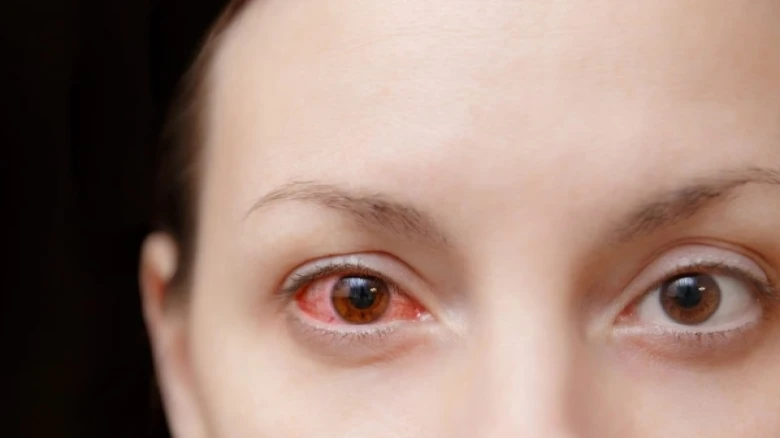Sports

One private eye care institution in Delhi recorded 1032 cases of conjunctivitis in the Delhi NCR and 1521 cases...
Digital Desk: Multiple cases of conjunctivitis have been reported in Delhi NCR after the recent relentless rain that has drenched the national capital and adjacent places.
Conjunctivitis cases are increasing in the Delhi NCR, and the national capital is reporting 100 cases each day, according to Dr. JS Titiyal, Chief RP Centre for Ophthalmic Sciences, AIIMS.
"Every day, we get at least 100 cases of conjunctivitis." Conjunctivitis cases typically increase seasonally, coinciding with flu season. "Viruses are the most common cause of conjunctivitis," Dr Titiyal explained.
Every year during the monsoon season, conjunctivitis incidences are observed. "Red eye returns with the monsoon, itching, redness, watering, and sometimes discharge," Dr Harsh Kumar, Ophthalmologist, Centre for Sight remarked.
One private eye care institution in Delhi recorded 1032 cases of conjunctivitis in the Delhi NCR and 1521 cases across India.
Also Read : India's Lawmakers to consider new drugs bill to regulate imports, manufacturing of medicines
"These figures represent a significant increase over the same period last year (July 2022), with 646 cases in the Delhi NCR and 1202 cases nationwide." The increase in numbers needs increased awareness and quick action to successfully limit the development of this eye ailment." Sharp Sight Eye Hospitals' Director and Co-Founder, Dr. Samir Sud, stated.
"General hygienic precautions should be taken. When you come in from the outside, you should wash your hands. Avoid direct contact with anyone in your family who has eye flu," he said.
"If you have conjunctivitis, wear dark goggles, avoid swimming, avoid close contact with others, do not touch your eyes, and children should avoid going to school for a few days to avoid spreading the disease to other students," he advised.
Dr. Harsh also highlighted some preventative steps and advised people to avoid congested areas.
"Avoid congested areas and avoid touching common objects such as railings or handles. Only use antibiotic eye drops," Dr. Harsh Kumar advised.
"It is critical to maintain strict hygiene practises to reduce the risk of transmitting conjunctivitis. Thoroughly washing hands, avoiding touching the eyes, and not sharing personal items like towels or eye makeup can help prevent the infection from spreading," Dr Samir Sud mentioned.
Leave A Comment